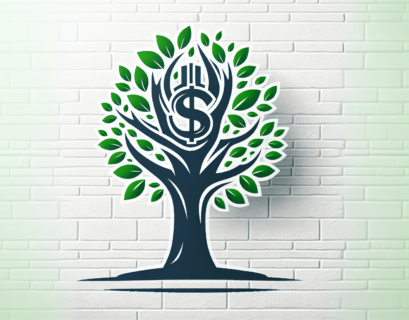If you’re looking for reliable strategies to tackle your credit card debt, then you’ve come to the right place. In this ultimate guide, you will find a treasure trove of tips and tricks to effectively manage and reduce your credit card debt. From creating a budget and prioritizing payments to negotiating with credit card companies and exploring debt consolidation options, this guide will provide you with a comprehensive roadmap towards financial freedom. So, say goodbye to sleepless nights and overwhelming statements, and get ready to take control of your credit card debt once and for all.
Understanding Credit Card Debt
What is Credit Card Debt
Credit card debt refers to the amount of money you owe to the credit card company for the purchases you make using your credit card. When you use your credit card to make a purchase, you are essentially borrowing money from the credit card company, with the promise to pay it back later. The amount you owe is considered your credit card debt.
How Credit Card Debt Accumulates
Credit card debt can accumulate in several ways. One way is by carrying a balance on your credit card from month to month. If you don’t pay off your full balance by the due date, the remaining amount will start accruing interest, and this interest adds to your overall debt.
Another way credit card debt accumulates is by making new purchases on your credit card without paying them off in full. Each of these new purchases adds to the existing debt, and if you continue this pattern, it can quickly lead to a substantial amount of credit card debt.
Negative Implications of Credit Card Debt
Having a significant amount of credit card debt can have various negative implications on your financial well-being. Firstly, it can negatively impact your credit score. Credit card debt that is not managed effectively can lead to late or missed payments, which can result in a lower credit score.
Credit card debt also means that you are paying more in interest charges, which can eat away at your monthly budget and make it harder to save for the future. Additionally, having high levels of credit card debt can limit your ability to borrow money for other important purchases, such as a home or a car.
Analyzing Your Current Credit Card Debt
Review Credit Card Statements
To fully understand your credit card debt, it’s essential to review your credit card statements thoroughly. Take the time to go through your statements and understand each transaction, including the date, description of the purchase, and the corresponding amount. This will give you a clear picture of your current debt.
Identify Interest Rates for Different Cards
Different credit cards may have different interest rates associated with them. It’s important to identify the interest rates for each of your credit cards as this will determine how much you’ll be charged for carrying a balance. Make a note of the interest rates for each card to assess the impact on your debt repayment strategy.
Determine Total Debt
Once you have reviewed your credit card statements and identified the interest rates, you can determine your total credit card debt. Add up the outstanding balances on each of your credit cards to get a comprehensive understanding of the total amount you owe. This will serve as the starting point for creating a plan to tackle your debt.
Creation of a Budget
Evaluate Your Income and Expenditures
Creating a budget is a crucial step in managing credit card debt effectively. Begin by evaluating your income and expenditures. Determine how much money you have coming in each month and compare it to your monthly expenses. This will help you gain a clear understanding of your financial situation and where adjustments can be made.
Plan Your Essential and Non-Essential Expenses
Once you have evaluated your income and expenditures, it’s important to distinguish between essential and non-essential expenses. Essential expenses include things like housing, utilities, and groceries. Non-essential expenses refer to discretionary spending, such as entertainment or dining out. By categorizing your expenses, you can identify areas where you can potentially cut back to allocate more funds towards debt repayment.
Allocate Money for Debt Payment
After evaluating your income, expenses, and identifying areas for potential savings, allocate a specific amount of money towards debt payment in your budget. This designated amount should be realistic and manageable, ensuring that you can consistently make payments towards reducing your credit card debt.
Prioritizing Debts
Debt Avalanche Method
The debt avalanche method involves prioritizing your debts based on their interest rates. Start by making minimum payments on all of your credit cards, and then put any extra money towards the credit card with the highest interest rate. Once that card is paid off, move on to the next highest interest rate card. This method allows you to save the most money on interest charges in the long run.
Debt Snowball Method
The debt snowball method focuses on paying off your debts starting with the smallest balance first, regardless of the interest rate. Begin by making minimum payments on all your credit cards and allocate any extra funds towards the credit card with the smallest balance. Once that card is paid off, move on to the next smallest balance. This method provides a sense of accomplishment as you see individual debts being paid off, which can help motivate you to continue the debt repayment journey.
Choosing the Right Strategy for You
Both the debt avalanche and debt snowball methods have their advantages and disadvantages. The right strategy for you ultimately depends on your personal preferences and financial situation. Consider factors such as your motivation levels, the size of your debts, and the interest rates. Choose the method that aligns with your goals and will keep you motivated throughout the debt repayment process.
Negotiating with Credit Card Companies
When and Why to Consider This
Negotiating with credit card companies can be an option if you find yourself struggling to meet your minimum payments due to financial hardship or unexpected circumstances. It is essential to consider negotiation when you anticipate that you may fall behind on payments or when you want to explore options for reducing your interest rates or overall debt.
How to Approach Your Credit Card Company
Approaching your credit card company to negotiate requires preparation. Compile all the necessary financial information, such as your income, expenses, and details of your credit card debt. Contact your credit card company’s customer service department and explain your situation openly and honestly. Be prepared to provide evidence of your financial hardship and clearly express your desire to find a manageable solution.
Potential Outcomes
When negotiating with your credit card company, there are several potential outcomes. You may be able to secure a lower interest rate, negotiate a reduced payoff amount, or work out a more manageable payment plan. Credit card companies want to avoid default, and they may be willing to work with you to find a solution that benefits both parties. Be open to compromise and explore the options available to you.
Consolidation of Credit Card Debt
Understanding Debt Consolidation
Debt consolidation involves combining multiple credit card debts into a single loan or credit card. By consolidating your debt, you simplify the repayment process as you only have to make one monthly payment instead of multiple payments to different credit cards.
Benefits of Debt Consolidation
There are several benefits to consolidating credit card debt. Firstly, it can help streamline your finances by reducing the number of accounts you have to manage. Additionally, consolidating your debt may allow you to secure a lower interest rate, potentially saving you money in the long run. It also simplifies your repayment strategy by focusing on a single loan or credit card.
How to Consolidate Your Credit Card Debts
To consolidate your credit card debts, you have a few options. You can apply for a balance transfer credit card that offers a low or 0% introductory interest rate for a specific period. Alternatively, you can take out a personal loan to pay off your credit card debt. Evaluate the terms and interest rates of each option, and choose the one that best suits your financial situation and goals.
Paying More Than The Minimum Payment
How Minimum Payments Work
When you receive your credit card statement, it includes a minimum payment amount that you are required to pay each month. This minimum payment typically covers a small portion of your principal balance and the interest charges. While making the minimum payment helps you avoid late fees and penalties, it can prolong the time it takes to pay off your debt due to the compounding interest.
Benefits of Paying More Than the Minimum
Paying more than the minimum payment on your credit card each month has several benefits. Firstly, it reduces the overall interest you will pay over the duration of your debt. Additionally, it allows you to pay off your debt faster, giving you the opportunity to become debt-free sooner. By making larger payments, you can gain control over your finances and achieve your financial goals more quickly.
Strategies for Making Larger Payments
To make larger payments, look for areas in your budget where you can cut back on expenses. Consider reducing discretionary spending, such as eating out or entertainment, and redirect those funds towards your credit card debt. Another strategy is to allocate any additional income, such as bonuses or tax refunds, towards your debt payments. By consistently making larger payments, you can accelerate your progress towards becoming debt-free.
Staying Out of Credit Card Debt
Building an Emergency Fund
One of the most effective ways to stay out of credit card debt is to build an emergency fund. An emergency fund is a savings account set aside to cover unexpected expenses, such as medical emergencies or car repairs. By having this financial safety net, you’ll be less likely to rely on credit cards when unexpected costs arise, reducing the risk of accumulating more debt.
Regular Reviews of Your Budget and Debt
To stay out of credit card debt, it’s crucial to regularly review your budget and debt status. Take the time to evaluate your income and expenses, making any necessary adjustments to ensure you are living within your means. Additionally, monitor your debt repayment progress and celebrate milestones along the way. Regular reviews keep you accountable and help you stay on track towards financial freedom.
Developing Healthy Spending Habits
Developing healthy spending habits is essential for staying out of credit card debt. Practice mindful spending by considering your purchases thoughtfully. Ask yourself if the item or experience is a true necessity or if it aligns with your long-term financial goals. Prioritize saving and investing over impulsive buying, and always consider the long-term implications of your financial decisions.
Proactively Using Credit Card Rewards
Understanding Credit Card Rewards
Credit card rewards programs offer various incentives for using your credit card, such as cashback, travel rewards, or loyalty points. Understanding the rewards offered by your credit card can help you maximize the benefits while using it responsibly. Rewards can provide additional value and potentially reduce your overall expenses, making it a win-win situation when used correctly.
Strategies for Maximizing Rewards
To maximize credit card rewards, consider using your credit card for everyday expenses and bills, as long as you can pay off the balance in full each month. Take advantage of promotional offers or sign-up bonuses, but be cautious not to overspend just to earn rewards. Additionally, explore any loyalty programs or partnerships that can enhance the rewards you earn through your credit card usage.
Balancing Rewards with Payment Strategy
While credit card rewards can be enticing, it’s important to maintain a balance with your debt repayment strategy. Always prioritize making timely payments and reducing your credit card debt over accumulating more debt for the sake of earning rewards. Use credit card rewards as a bonus to your responsible financial habits, rather than relying on them as a primary source of financial stability.
Involving a Credit Counseling Agency
What is Credit Counseling
Credit counseling involves working with a professional counselor who can provide personalized guidance on managing credit card debt and improving your overall financial situation. Credit counselors are trained to assess your financial condition, provide budgeting assistance, and offer advice on debt repayment strategies.
When to Consider Credit Counseling
If you are feeling overwhelmed by your credit card debt or struggling to make progress, it may be time to consider credit counseling. Credit counseling can provide you with the tools and support needed to develop a plan for paying off your debt and improving your financial well-being. It can be particularly beneficial if you need expert advice or if negotiation with credit card companies has not provided satisfactory results.
Choosing a Reputable Credit Counseling Agency
When choosing a credit counseling agency, it’s important to do thorough research to ensure you are working with a reputable organization. Look for agencies that are accredited by recognized organizations and have positive customer reviews. It’s also essential to understand the fees associated with credit counseling services and ensure they are reasonable and transparent. Taking the time to choose the right credit counseling agency can greatly increase your chances of successfully managing your credit card debt.







